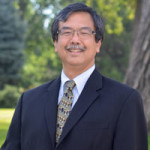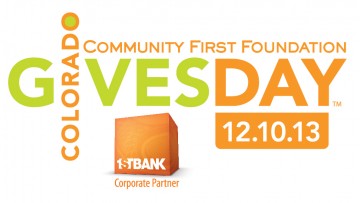What’s right with you is the starting point; what’s wrong with you is beside the point. (1)
During this holiday season, I’d like us to begin from the right starting point: what’s right with us. Last week we passed through a liminal space—a doorway into Life provided by the unique convergence of 3 holidays: the eight days of Hanukkah began Thanksgiving eve, followed by Thanksgiving on the 28th, and four weeks of Advent began December first.
We’ve ingested a temporal turducken. Like the turkey stuffed with a duck stuffed with a chicken, so too have we simultaneously swallowed these three normally disparate holidays. So, I began to wonder: could there, perhaps, be some common themes among the three holidays? Otherwise, it’s a lot to swallow. Well,
- Lincoln declared the fourth Thursday in November to be a national day of Giving Thanks to God in 1863.
- Hanukkah memorializes and blesses the God who performed the miracle of a Maccabeean victory, the cleansing of the Temple, and the keeping of the lamp lit for 8 days.
- Advent marks the beginning of the Christian year and initiates a time of patient soulish hopefulness in anticipation of the appearance of Immanuel, God-with-us.
Each of these holidays acknowledges the impulse in us to find the right Recipient of our deepest sense of gratitude.
To be sincere, gratitude needs to be immediate, explicit and specific. To be authentically impactful it needs to come from the heart, and it needs to be spoken heart-to-heart…. (1)
This holiday turducken reminds us how each of these peoples remained anchored to God in their present moments. It is only from our 2013 vantage point that we know the Civil War would end two years after that prescient Thanksgiving and that slaves would be Emancipated in 1865. But, place yourself in the grim 1863 aftermath of the bloodiest battle of the Civil War. Even then, Lincoln was able to declare a national day of “Thanksgiving and Praise to our beneficent Father who dwelleth in the Heavens.”
Hanukkah commemorates God’s delivery of Israel from the oppressive rule of Antiochus IV Epiphanes, who erected a temple to Zeus and slaughtered pigs on the altar of the Second Temple. Judas Maccabee (“the Hammer”) defeated the Greek Seleucids and cleansed the Temple of that desecration. While there remained only enough desecrated oil to last one night, Yahweh kept the lamp miraculously kept burning for eight days until new oil could be pressed.
Imagine yourself in that first or second day, wondering if the oil would run out and the light of Yahweh extinguished. Hanukkah celebrates the wonder of God’s miraculous provision of light in the Darkness.
Beginning this past December first, the four Sundays of Advent allow believers in Jesus to re-imagine, to re-experience, the Jews’ four centuries of waiting for their Messiah. For four centuries before John the Baptist, there was no utterance from Israel’s Prophets. Then, a surprising ferment of activity. First there was the Virgin Mary’s celebration of the Jesus’ conception in her delightful song the Magnificat (Luke1:46-55). Then the angelic appearance in Bethlehem. And when Joseph and Mary brought the eight day old Jesus up to Jerusalem to the temple to be circumcised, they were greeted by Anna and Simeon, who separately recognized their baby as the long awaited King (Luke 2:25ff).
Advent is a time of when believers re-experience that Present of the four centuries of waiting: hope is dimming and, like Simeon and Anna, might wonder, “Will God’s promise to me be fulfilled? Will I really see the Messiah?”
The lesson from the traditions behind our temporal turducken? Let’s return to the present, our present. It’s being in that moment in which there is uncertainty. No matter how many Monte Carlo simulations we run on the parameters of our future, we still live in and with the unknown. By definition, to live in the present, we live in the “not yet.”
Complete possession is proved only by giving; all you are unable to give possesses you. — André Gide French author and 1947 Nobel Prize winner in literature
How, then, might we live best in the present? Give thanks! And discover to Whom you are giving thanks! To do so is to have open hands—a freedom!–to dissolve the grasping hands of scarcity and fear of the unknown. Our forefathers celebrated their God’s generous provision for their needs in that moment.
Let’s continue celebrating this turducken holiday (“Holy Day”) as a time for us to realize the holy ground we stand on. Let’s celebrate our traditions that give us permission to express our pent-up gratitude to the Someone bigger than ourselves.
Toolkit: 
As you look back on this Thanks-giving weekend, this Hanukkah season, this Advent season consider that
Gratitude is the paddle we use in the river of life to draw us closer to one another and align our will with God’s. (1)
- What is one thing for which you are thankful right now?
- What is one thing that you look forward to right now?
- What is the one battle you have recently won right now?
SOURCE (1) Joe Kittel




